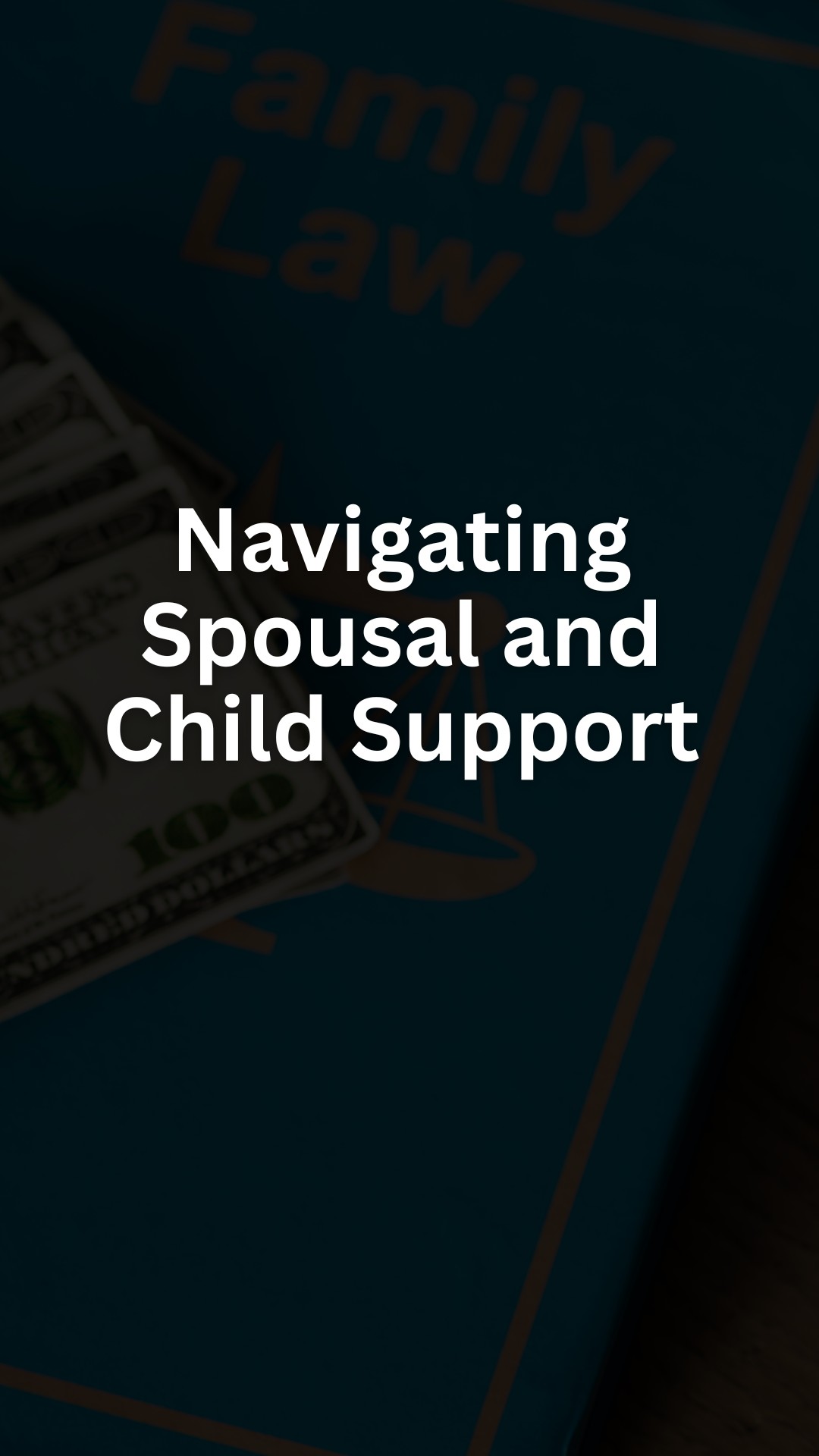Divorce can be emotionally and financially draining, but you can take steps to protect your finances.
Start by gathering all financial documents, including bank statements, tax returns, and property records. This helps you understand your financial situation and know what you’re entitled to.
It’s crucial to open a separate bank account in your name. This ensures that you have access to funds during the divorce process.
Having your own money can prevent financial manipulation by your spouse and gives you the independence to pay for legal fees and daily expenses.
Consult a financial advisor who specializes in divorce. They can help you make informed decisions about dividing assets and debts.
Making smart financial choices now can secure your financial future and help you move on with confidence.
Understanding Financial Rights and Responsibilities

When going through a divorce, understanding your financial rights and responsibilities is crucial. You need to protect your assets and ensure a fair outcome.
Know Your Assets: Make a list of all the money, property, and investments you own. Include joint accounts and any assets you brought into the marriage.
Understand Debts: Keep track of any debts you share with your spouse. This includes mortgages, credit cards, and loans.
Step-by-Step Guide:
- Gather Documents:
- Bank statements
- Tax returns
- Investment accounts
- Property deeds
- Consult a Lawyer: Get legal advice to know your rights. A lawyer can help you understand what you’re entitled to.
- Stay Informed: Read up on local divorce laws. Every location has different rules about dividing money and property.
Common Financial Rights:
- Equal Share: In many places, assets and debts are split 50/50.
- Alimony: You may be entitled to financial support from your spouse.
- Child Support: If you have children, both parents must contribute to their needs.
Common Responsibilities:
- Debt Repayment: Both parties might be responsible for shared debts.
- Spousal Support: You might need to pay alimony if your spouse earns less.
- Child Expenses: You must contribute to your child’s health care, education, and general welfare.
Hiring Legal and Financial Professionals

During a divorce, hiring the right legal and financial professionals is key. They can help you navigate the process and protect your interests.
Selecting a Divorce Attorney
When choosing a divorce attorney, look for someone with experience in family law.
Credentials and specializations are important. Make sure the attorney is familiar with local laws and court rules.
Personal referrals from friends or family can be helpful but research online reviews too.
Meet with a few attorneys before making a decision.
Ask about their strategy for your case. Discuss their fees and understand how they will charge you. Will it be a flat fee, hourly rate, or retainer?
It’s crucial to feel comfortable with your attorney. You need to trust them, as they will handle sensitive information.
A good attorney should communicate clearly and keep you informed throughout the process.
Engaging a Financial Advisor
A financial advisor can help you understand the financial impact of your divorce. Look for an advisor with experience in divorce cases.
Ask about their qualifications, such as Certified Divorce Financial Analyst (CDFA) designation.
Understanding assets and liabilities is essential.
A financial advisor will help you identify and value marital assets, including retirement accounts, investments, and real estate.
They will also help you plan for your financial future post-divorce.
Discuss fees up front with potential advisors. Some may charge by the hour, while others may have a flat fee or a percentage of managed assets.
A good financial advisor will help you create a realistic budget and develop a financial plan for after the divorce.
They can also assist with tax implications, ensuring you make informed financial decisions.
Inventory of Assets and Liabilities

When going through a divorce, it is important to list all assets and debts. This helps ensure a fair division.
Start by understanding what is shared and what is owned individually.
Determining Marital Property
Marital property includes everything acquired during the marriage. This can be your house, cars, bank accounts, and retirement plans.
- House: Consider the mortgage and current market value.
- Cars: Check the ownership and any outstanding loans.
- Bank Accounts: List balances from savings and checking accounts.
- Retirement Plans: Include pensions, 401(k)s, and IRAs.
Property owned before marriage usually remains individual. Gifts and inheritances are also considered individual property.
Assessing Individual Debts
Individual debts can complicate the process. This includes credit card debt, personal loans, and medical bills.
- Credit Cards: Note the balances and which spouse is responsible.
- Personal Loans: List any loans taken individually.
- Medical Bills: Include any outstanding healthcare costs.
Remember to gather recent statements for all debts. This helps in getting an accurate picture of what is owed and who should pay.
Establishing a Personal Budget

Creating a budget during a divorce helps you manage your money effectively and plan for the future.
Focus on analyzing your current expenses and forecasting your financial situation after the divorce.
Analyzing Current Expenses
Start by listing all your monthly expenses. Include rent or mortgage, utilities, groceries, insurance, and any other regular costs. Be thorough to get an accurate picture.
To organize these expenses, use a simple table like this:
| Expense | Amount per Month |
|---|---|
| Rent/Mortgage | $ |
| Utilities | $ |
| Groceries | $ |
| Insurance | $ |
| Transportation | $ |
| Miscellaneous | $ |
Look for areas where you can cut back. Maybe you can cancel subscriptions you don’t use anymore or find cheaper alternatives for some services.
Tracking your spending helps you understand where your money goes and what you can adjust.
Forecasting Post-Divorce Finances
Estimate your income and expenses after the divorce. Account for changes like child support, alimony, or losing a second income. This helps you see how your financial situation may change.
Make a new budget based on these estimates. First, list your expected income. Then, update the table with your future expenses.
Ensure to consider any new costs you might face, like childcare or moving to a new home.
Here’s an updated example:
| Expense | Expected Amount per Month |
|---|---|
| Rent/Mortgage | $ |
| Utilities | $ |
| Groceries | $ |
| Insurance | $ |
| Childcare/School Fees | $ |
| Transportation | $ |
| Miscellaneous | $ |
Sticking to this new budget helps you stay financially stable and prepared for the future. Review and adjust it as needed to keep it realistic and useful.
Separating Joint Accounts and Credit Cards

When going through a divorce, separating joint accounts is important. Joint bank accounts need to be closed. Open new individual accounts for yourself.
Steps to Separate Joint Bank Accounts:
- Withdraw your share of funds.
- Close the account.
- Open new accounts in your name.
Joint credit cards can cause issues. You need to close joint credit cards as well.
Steps to Separate Joint Credit Cards:
- Pay Off Balances: Try to pay off any balances first.
- Close Accounts: Contact the credit card company to close the account.
- Open New Accounts: Get new credit cards in your name only.
Important Tips:
- Document Everything: Keep records of transactions and communications.
- Monitor Your Credit: Regularly check your credit report.
Navigating Spousal and Child Support

When divorcing, it’s essential to understand how spousal and child support work. This will help you plan your finances and ensure you can meet your and your children’s needs.
Calculating Spousal Support
Spousal support, also known as alimony, is money paid to a spouse after a divorce. The purpose is to help the lower-earning spouse maintain a similar standard of living.
Courts look at several factors to decide the amount and duration of spousal support. These factors include the length of the marriage, each person’s income, and their ability to work. Health and age can also play a role.
You may need to hire a financial expert or lawyer to help calculate a fair amount. Tools and calculators available online can give you an estimate.
Understanding Child Support Laws
Child support is money one parent pays to the other for the children’s care. This support covers essentials like food, clothing, and education.
Each state has its own child support laws and guidelines.
Generally, the court considers both parents’ incomes, the number of children, and custody arrangements.
Payments are usually made monthly. Failure to pay child support can lead to penalties such as wage garnishment or even jail time.
Protection Against Financial Fraud

During a divorce, protecting your finances from fraud is crucial. One common issue is a spouse hiding assets. To safeguard yourself, keep a close eye on your finances.
Review all financial records. Bank statements, tax returns, and loan documents should be checked carefully. If you notice something odd, report it to your lawyer.
Another tip is to change all your passwords. Secure your bank accounts, email, and social media. Make sure only you can access these accounts.
Consider hiring a forensic accountant. These professionals can uncover hidden assets. They analyze financial records and notice things others might miss.
Keep original copies of important documents. This includes property deeds, investment accounts, and insurance policies. Store them in a safe place where only you have access.
Fraud can come in many forms. Be wary of sudden changes in spending patterns. If your spouse is unusually secretive, it might be a red flag.
Finally, stay in close contact with your legal team. They will offer advice and help you navigate any financial issues. Always communicate any concerns you have.
Managing Taxes During Divorce

Divorce can change your tax situation significantly. You need to know how to adjust your filing status and handle tax credits and deductions.
Filing Status Changes
When you divorce, your filing status changes. Your status impacts your tax bracket and how much you owe.
Five statuses:
- Single
- Married Filing Jointly
- Married Filing Separately
- Head of Household
- Qualifying Widow(er)
For the year you divorce, if you’re not remarried by December 31, you generally file as Single or Head of Household if you qualify. Filing as Head of Household can have lower tax rates and a higher standard deduction.
Handling Tax Credits and Deductions
Tax credits and deductions lower your tax bill. After divorce, decide who claims what.
Common credits and deductions:
- Child Tax Credit
- Child and Dependent Care Credit
- Earned Income Tax Credit
- Mortgage Interest Deduction
Usually, the custodial parent claims Child Tax Credit and Dependent Care Credit. Only one parent can claim Earned Income Tax Credit. You may need an agreement or court order to decide these. For deductions like mortgage interest, check who paid and owned the home.
Make a plan to handle taxes carefully.
Updating Estate Plans and Wills

When going through a divorce, revisiting your estate plans and wills is crucial. If left unchanged, your ex-spouse might still be the beneficiary.
First, check your will. Make sure to remove your ex-spouse and update beneficiaries.
Next, look at any trusts. You may need to change the trustee or the beneficiaries.
Consider updating your power of attorney. Your ex-spouse should not have control over your decisions.
Pay attention to your healthcare proxy. This document allows someone to make medical decisions for you. Choose someone you trust.
Review your life insurance policies. Update the beneficiary to avoid issues later.
Don’t forget your retirement accounts. Beneficiaries on these accounts need updating as well.
Negotiating a Fair Settlement

To negotiate a fair settlement, it’s important to assess proposals carefully and use effective strategies. These steps will help protect your financial future during a divorce.
Evaluating Settlement Proposals
Carefully review each proposal. List assets and debts.
Think about long-term effects. Use a table to compare:
| Asset/Debt | Value ($) | Who Keeps It? | Notes |
|---|---|---|---|
| House | 250,000 | You | |
| Car | 20,000 | Spouse | |
| Loan Debt | 15,000 | You |
Calculate how each asset or debt affects you.
It’s also critical to consider retirement accounts, investments, and child support.
Ask your lawyer or financial advisor for advice. Make sure you understand the tax impacts of each asset or debt.
Checking these details helps ensure the proposals are fair.
Effective Negotiation Strategies
Negotiation is key.
Be clear about what you need. Prioritize important items.
For example, if you need the house for your kids, highlight that.
Use “I” statements to express your needs without blaming your spouse.
Prepare for discussions by knowing the value of your assets.
Stay calm and think logically.
Use mediation if needed. It allows a neutral third party to help.
Be willing to compromise on less critical issues.
Focus on win-win solutions to reach a fair agreement.
Post-Divorce Financial Planning

After a divorce, you will need to take steps to manage your money carefully. This can help you to avoid stress and keep your life on track. Here are some important steps you can follow:
1. Create a Budget:
- List all your income sources.
- List all your monthly expenses.
- Track your spending to see where your money is going.
2. Update Your Financial Accounts:
- Change your beneficiaries on insurance policies.
- Update your will and any trusts.
- Review your bank accounts and investment accounts.
3. Assess Your Insurance Needs:
- Look at your health insurance coverage.
- Consider life insurance, especially if you have children.
- Check your home and auto insurance for necessary updates.
4. Build an Emergency Fund:
- Aim to save three to six months’ worth of expenses.
- Start small if you need to, and build up over time.
- Keep this fund in a high-interest savings account.
5. Plan for Retirement:
- Review your retirement accounts and make sure they are in order.
- Consider talking to a financial advisor to help adjust your retirement plan.
- Maximize your contributions if possible.
6. Set New Financial Goals:
- Think about short-term goals like paying off debt.
- Plan for long-term goals such as buying a home or investing.
- Regularly review your goals and adjust them as needed.
Frequently Asked Questions

Divorce can be a tough time, especially when it comes to managing finances. Here are some common questions and answers to help you navigate this challenging period.
What steps should be taken to secure assets before proceeding with a divorce?
You should start by documenting all your assets and debts.
Create a list that includes bank accounts, properties, investments, and valuables.
Also, consider opening individual bank accounts to separate your finances from your spouse’s.
What are effective strategies for managing joint bills during separation?
Keep track of all joint bills and payments.
Try to split expenses evenly or based on income sources.
It helps to communicate clearly with your spouse and possibly set up a temporary joint account dedicated to household expenses during the separation.
How can an individual ensure financial stability after a divorce is finalized?
Create a new budget that reflects your changed financial situation.
Consider speaking with a financial advisor to help you plan.
Saving money and possibly finding additional sources of income can also help you stay financially stable.
What legal measures can be taken to prevent significant financial loss in a divorce?
Consult with a divorce attorney to understand your rights and options.
You might need to file legal documents to protect your finances.
Prenuptial or postnuptial agreements can also be useful in safeguarding your assets.
In the context of divorce, how can one safeguard personal funds from a spouse?
Open a separate bank account and start depositing your income there.
Make sure to avoid using joint accounts for personal expenses.
Keep records of your earnings and expenses to provide clear documentation if needed.
What considerations should be made to protect oneself financially as a man in the context of divorce?
Ensure that you have detailed financial records. Understand your rights regarding alimony and asset division. Seek advice from a financial advisor and a lawyer to make informed decisions.